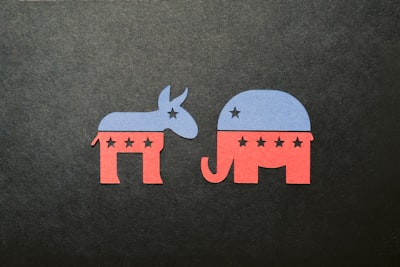Summary:
Elon Musk, billionaire CEO and political iconoclast, has announced the formation of a new US political organization—the so-called America Party—and hinted it may focus on influencing a few pivotal House and Senate races rather than building a broad national presence. This announcement came amidst a very public spat with President Trump over a controversial spending bill, and after Musk has poured hundreds of millions into supporting Trump’s recent presidential campaign. Musk’s pitch revolves around breaking the “uniparty” monopoly of Democrats and Republicans, with his party aiming to wield deciding power in closely contested Congressional votes. Musk’s social media poll and rhetorical framing suggest his initiative is both a response to, and exploitation of, anti-establishment sentiment.
Analysis:
Musk’s proposal taps into long-standing frustrations about the two-party system, exploiting the razor-thin Congressional margins to position a small but strategic new party as a potential kingmaker. However, the coverage from The Guardian leaves several questions unexplored. While describing Musk’s tactics and highlighting his personal feud with Trump, the article notes but does not deeply interrogate the risks of such a party—especially one bankrolled and tightly controlled by a billionaire with private interests in both government contracts and policy outcomes.
The timing and tone of Musk’s announcement suggest both opportunism (capitalizing on Independence Day and public irritation at government spending) and personal vendetta (targeting politicians who supported Trump’s bill). There’s also an implicit assumption that voter discontent can be translated directly into electoral success—a dubious proposition given the entrenched electoral apparatus and widespread voter skepticism of top-down movements. References to Musk’s track record in government efficiency—marked by massive cuts and controversial outcomes—further complicate his credibility as a reformer.
Ethically, there’s a deeper concern: the increasing normalization of mega-wealthy individuals as self-appointed political disruptors, unaccountable to constituencies but able to leverage outsized resources to steer legislative and administrative agendas. The article hints at, but does not fully unpack, the democratic hazards of this trend or the possibility of real multi-party reform genuinely reflecting public will.
Discussion:
Musk’s ‘America Party’ initiative matters for several reasons. It reflects a genuine hunger among some voters for alternatives to the ossified two-party structure—and an acute anxiety about how concentrated money and power shape national policy. Yet it also echoes previous attempts by wealthy outsiders to upend US politics (think Ross Perot, Howard Schultz, or Michael Bloomberg), most of which have struggled to convert hype into sustained movement-building.
The Guardian’s report raises provocative questions: Can a billionaire-led party credibly claim to represent “the true will of the people”? Does targeting a handful of swing seats with massive funding simply intensify the transactional, winner-takes-all dynamic Musk claims to oppose? What’s the likely impact on political polarization, governance, or public trust? And, perhaps most troubling, does this trend signal the further erosion of democratic norms—where power shifts from an imperfect but collective system to the whims and rivalries of ultra-rich individuals?
The story invites both wariness and curiosity: Wariness, because new parties rooted in personal fortune and platform wars may end up reproducing the very insularity and gridlock they claim to fix. Curiosity, because such moves highlight a deep, unresolved tension in US politics—between the desire for genuine representation and the machinery of power and money that continually reshapes it. Whether the ‘America Party’ becomes a durable force or a footnote, it encapsulates the country’s ongoing struggle to reinvent its democracy amid mounting institutional cynicism and elite jockeying.

Comments
No comments yet. Be the first to comment!